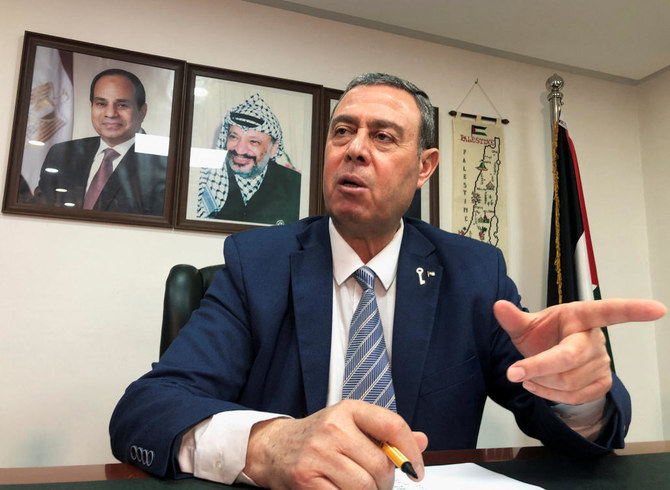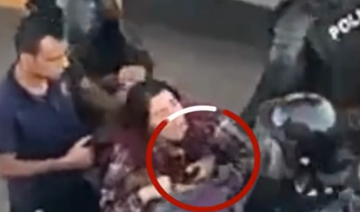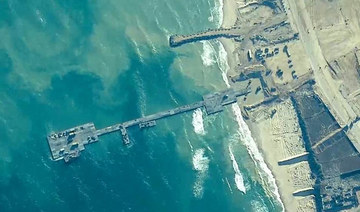CAIRO: The Palestinian Embassy in Egypt is seeking temporary residency permits for tens of thousands of people who have arrived from Gaza during the war between Israel and Hamas, which it says would ease conditions for them until the conflict is over.
Diab Al-Louh, the Palestinian ambassador in Cairo, said as many as 100,000 Gazans had crossed into Egypt, where they lack the papers to enrol their children in schools, open businesses or bank accounts, travel, or access health insurance — though some have found ways to make a living.
Louh stressed that residency permits would only be for legal and humanitarian purposes, adding that those who arrived since the war began on Oct. 7 had no plans to settle in Egypt.
“We are talking about a category (of people) in an exceptional situation. We asked the state to give them temporary residencies that can be renewed until the crisis in Gaza is over,” Louh told Reuters in an interview.
“We have confidence that our Egyptian brothers will understand this. They have already provided a lot,” he said. “But ... this is an issue of sovereignty being discussed at the highest level.”
Egypt’s State Information Service did not immediately respond to a request for comment.
Egypt has been vocal in its opposition to any mass displacement of Palestinians from Gaza, framing this as part of wider Arab rejection of any repeat of the “Nakba,” or “catastrophe,” when some 700,000 Palestinians fled or were forced from their homes in the war surrounding Israel’s creation in 1948. Palestinian leaders also reject settlement of their people in foreign countries.
During the current war, the Rafah Crossing on the 13-km (8-mile) border between Egypt’s Sinai Peninsula and Gaza has been an entry point for aid deliveries, and has also remained largely open for passenger traffic.
But departures from Gaza, already strictly controlled before the war, have been limited to medical evacuees, foreigners and dual nationals, and Palestinians who pay fees to a company called Hala owned by a prominent Sinai businessman.
‘Things are tough’
Those leaving also need security clearance from Israel and Egypt, which together have upheld a blockade on the enclave since Hamas took power there in 2007.
“We are speaking of 100,000 who are looking forward to the day they can come back to Gaza ... maybe once a truce is reached or the war is ended,” said Louh, a Palestinian Authority official who is himself from Gaza.
“But until this happens, people need to correct their legal status.”
The embassy had already helped facilitate passage for some families to return to Gaza during the war, Louh said. Some Palestinians, including visitors and students enrolled at Egyptian universities, became stranded in Egypt when the war started.
Tens of thousands of Palestinians are thought to have settled after 1948 in Egypt, though numbers were lower than in Jordan, Lebanon and Syria, where the United Nations set up refugee camps. As rules granting Palestinians equal rights to Egyptians were rescinded from around the time of Egypt’s 1978 peace accord with Israel, Palestinians say they experienced increasing difficulties in obtaining documents.
The embassy’s efforts to help Gazans in Egypt have been complicated by a lack of funds and staff. The Palestinian Authority, which has limited autonomy in the occupied West Bank, has been hit by drop in international donor funding and Israel’s withholding of tax revenues it collects on behalf of Palestinians.
“Things are tough, dangerous, and they could become more dangerous,” Louh said, referring to the possibility of a major Israeli incursion into Rafah, where more than a million Gazans have sought shelter near the border with Egypt.


























